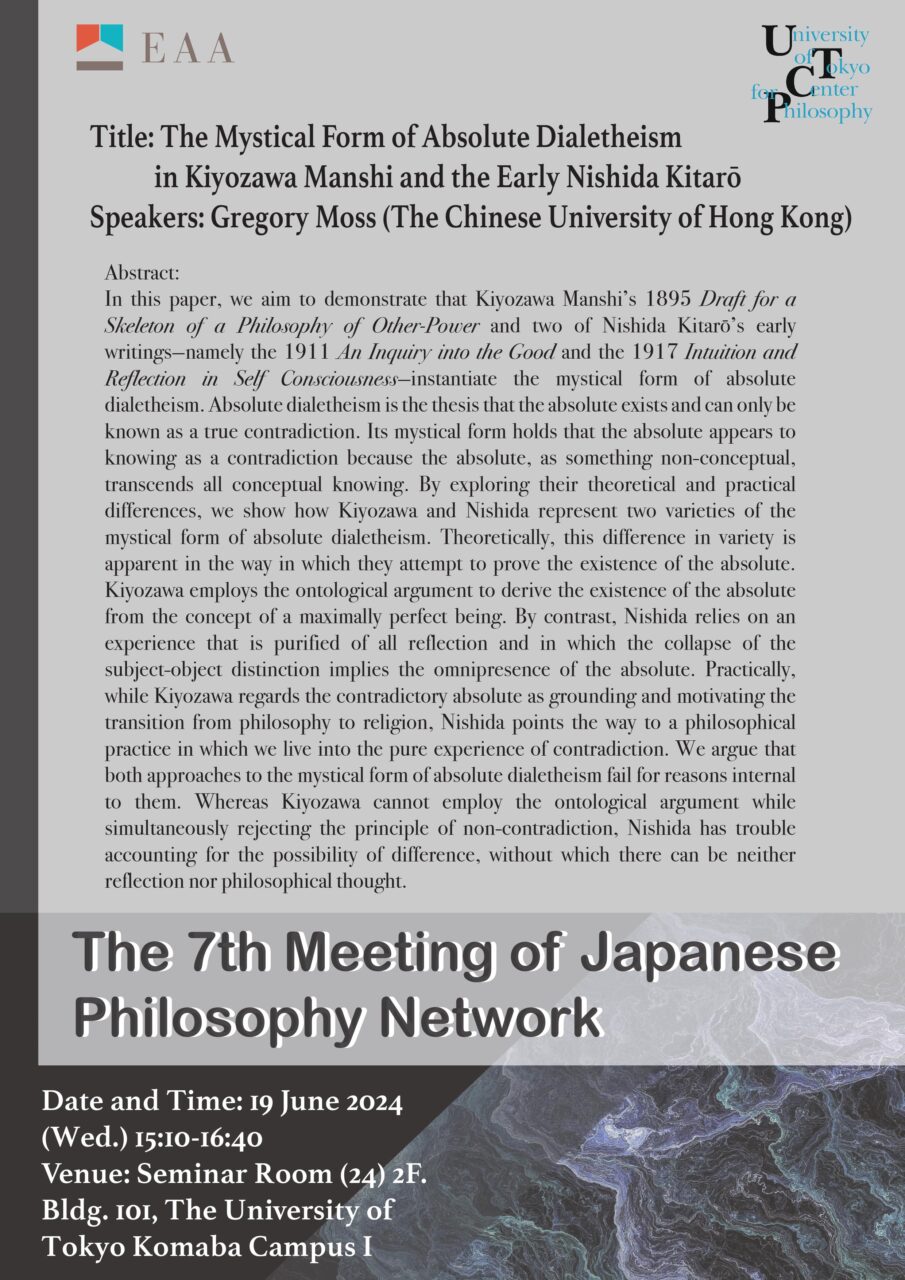発表者:Gregory Moss (The Chinese University of Hong Kong)
発表題目:The Mystical Form of Absolute Dialetheism in Kiyozawa Manshi and the Early Nishida Kitarō
要旨:
In this paper, we aim to demonstrate that Kiyozawa Manshi’s 1895 Draft for a Skeleton of a Philosophy of Other-Power and two of Nishida Kitarō’s early writings—namely the 1911 An Inquiry into the Good and the 1917 Intuition and Reflection in Self Consciousness—instantiate the mystical form of absolute dialetheism. Absolute dialetheism is the thesis that the absolute exists and can only be known as a true contradiction. Its mystical form holds that the absolute appears to knowing as a contradiction because the absolute, as something non-conceptual, transcends all conceptual knowing. By exploring their theoretical and practical differences, we show how Kiyozawa and Nishida represent two varieties of the mystical form of absolute dialetheism. Theoretically, this difference in variety is apparent in the way in which they attempt to prove the existence of the absolute. Kiyozawa employs the ontological argument to derive the existence of the absolute from the concept of a maximally perfect being. By contrast, Nishida relies on an experience that is purified of all reflection and in which the collapse of the subject-object distinction implies the omnipresence of the absolute. Practically, while Kiyozawa regards the contradictory absolute as grounding and motivating the transition from philosophy to religion, Nishida points the way to a philosophical practice in which we live into the pure experience of contradiction. We argue that both approaches to the mystical form of absolute dialetheism fail for reasons internal to them. Whereas Kiyozawa cannot employ the ontological argument while simultaneously rejecting the principle of non-contradiction, Nishida has trouble accounting for the possibility of difference, without which there can be neither reflection nor philosophical thought.
日時:2024年6月19日(水)15:10 〜 16:40
場所:東京大学駒場キャンパスI 101号館 1階 11号室(EAAセミナー室)
言語:英語
主催:東京大学東アジア藝文書院(EAA)、東京大学共生のための国際哲学研究センター(UTCP)









